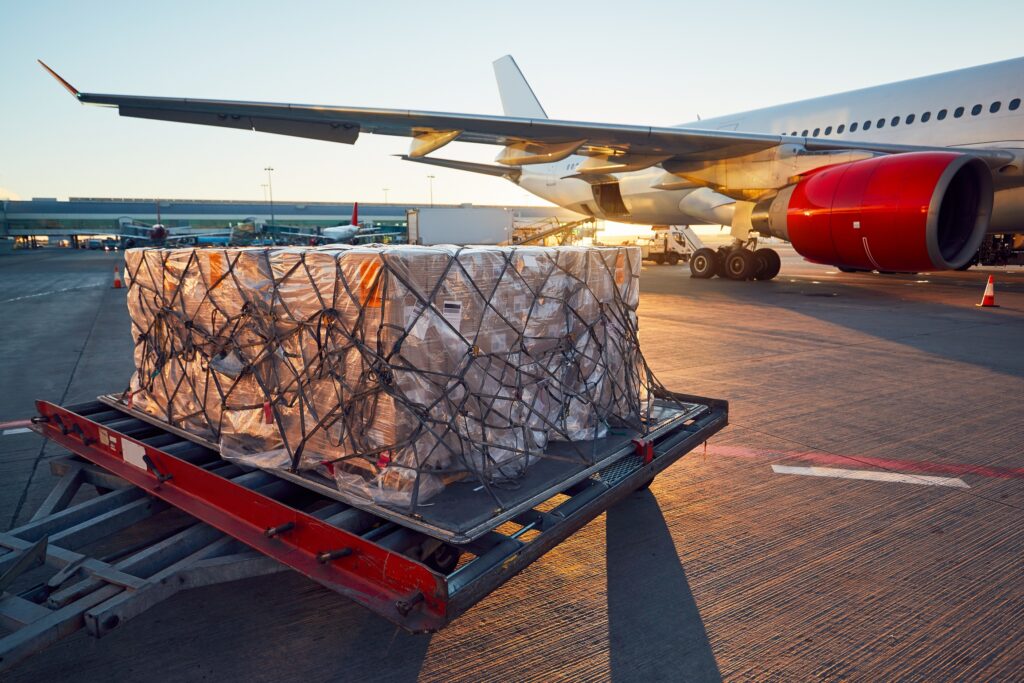Precise, Comprehensive Data in Air Freight
15th March 2023

On March 1st the EU customs safety and security system, ICS2, was launched for the air freight industry. In a transition period that has been extended through June 30, 2023, airlines have more time to adjust to the new procedures. “Air freight forwarders should use this period to ensure that they can provide the airlines with the additional data required,” advises DAKOSY authorized officer Dirk Gladiator. This includes the commodity code as well as the complete addresses of both the original sender and the final recipient.
With ICS2, the EU is introducing a unified and centralized procedure for dedicated risk analysis for goods from third countries, which begins even before the goods are loaded in the country of export. “The introduction of ICS2 in air cargo is a milestone. For the first time, we have a customs procedure with only one central European entry door instead of 27 national doors,” says Gladiator, assessing its significance. In the long run, the EU Directorate General for Taxation and Customs Union (TAXUD) plans that the vast majority of customs processes will be bundled via the specially-created Shared Trader Interface (STI).
In addition to the STI central reporting point, there are other innovations that will be implemented with the ICS2 customs system. In future, the declaration process will have two stages. Up to now, the Pre-Arrival notification (latest submission four hours before arrival of the aircraft) has already been in effect. A further notification has been added, the so-called Pre-Loading, which must be submitted as early as possible, in any case before loading begins. This information can be submitted by the airline or – what is new – also directly by the freight forwarder. The latter is called Multiple Filing. “Due to the extension of the deadline for airlines until June 30, 2023, the time window for Multiple Filing has been pushed back. For freight forwarders who want to participate, this is an important update. Conversions can occur between July 1 and Oct. 2, 2023, based on current information,” Gladiator explains.
In any case, the participating service providers must deliver more comprehensive data that meets a very high standard. Gladiator draws attention to this: “It is high time for freight forwarders to verify whether they can provide ICS2-compliant data. When an airline participates in the new procedure, the freight forwarder using that airline must also be able to provide the information required for Multiple Filing. Otherwise, the goods will not be loaded.
Transition period extended: freight forwarders should use window of opportunity to conduct review
Overview of required data reliability
For air freight, forwarders or loaders must provide the following additional data compared to the current ICS procedure:
* the complete address of the original sender,
* the complete address of the final consignee,
* the commodity code in the form of a six-digit HS code,
* EORI (the successor of the customs number at EU level) of the consignee.
It is important to note that the information must be properly structured, for example, a postal code must be entered with five digits. Otherwise, the data will not be recognized and this may lead to disruptions in the process. The EORI of the consignee is not technically a mandatory ICS2 specification. However, if the specification is available (the consignee is located in the EU), then the specification should be made. This is also underlined by the fact that the EORI is mandatory for the immediate follow-up procedure (Temporary Storage) in many EU member states and is therefore already required by the airlines.
Even if this part of data submission is more complex than before, the process as a whole is simplified and also made safer and more reliable for all involved, says Gladiator. He motivates participants to pass on the information as early as possible: “The sooner the airline has the data, the sooner possible errors can be identified and corrected, if necessary.”

